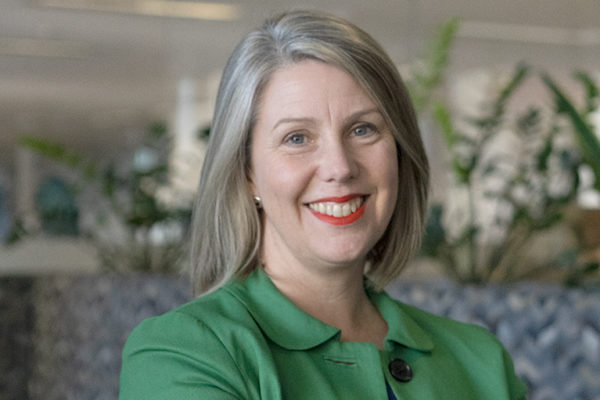On 1 July 2000, Australia experienced one of its most significant tax reform events with the introduction of goods and services tax (GST). The ATO’s Deborah Jenkins was working at the coalface to get the new tax off the ground. She is now Deputy Commissioner for Small Business and is in charge of the GST product.
To mark this 20-year milestone, Deborah shares her reflections on GST with Tax & Super Australia’s tax counsel John Jeffreys. She recalls the “heady but fun” days of implementation, and why going back to the basics is still what makes GST work best.
John Jeffreys: Deborah, you’ve had a long and distinguished career in tax. Can you tell us how it started?
Deborah Jenkins: Look, I must say that when I was a little girl, I probably didn’t say, “When I grow up, I want to do GST”. But I actually love it! I started out with New Zealand’s Inland Revenue Department doing transfer pricing, of all things. My background is finance and economics. So then very quickly I moved to doing income tax, fringe benefits tax, and then a little bit of GST there.
In New Zealand there aren’t that many GST specialists, and I started doing Australian GST while I was there. And it doesn’t make much sense to be doing Australian GST while in New Zealand. So, I came “across the ditch”. I was on my way to the UK for the typical “overseas experience” but was convinced to stay in Australia for a little while. And here I am, 20 years later.
JJ: Well, we’re glad you stayed! When you first came to Australia to assist KPMG clients with GST, what were your expectations? Were they met?
DJ: When I arrived, it was in the heady days of GST implementation. It was pretty crazy times! We were jumping on planes across the country. And, I just remember that, for me as a really quite junior staff member then, we would just sort of be thrown out to work and everyone pitched in to help.
Everything seemed so big. I’d come from little old New Zealand and everything was supersized here. It was so fast moving in those days. Things changed all the time, but it was a fun time.
I remember presenting to the Australian Football League (AFL) board about GST. I went back to the office and my colleagues said, “Oh my goodness! Who did you see?” Of course, I couldn’t remember anyone’s name because AFL meant nothing to a Kiwi!
JJ: You’ve mentioned your experience with the AFL board. Do you have any other interesting anecdotes or special memories in relation to the introduction of GST?
DJ: There are so many! There’s one I vividly remember about the night of GST implementation. For those people who can’t remember that time, we’d just come through Y2K and we’d all sort of survived, and then went into GST implementation.
That night, our team that had worked really, really hard to get to June had a dinner to celebrate at a Melbourne hotel. The biggest thing I remember of that night — and this is actually an anticlimax — is I could not get a taxi home! All the taxis had been taken off the roads to change their meters so they could cope with GST. I vividly remember walking up St Kilda Road from the city in an attempt to get home.
But there are many memories of the camaraderie and working with the industry. There was just that sense of all of us pitching in and working together. It didn’t matter whether you were from the tax office, from the profession or from the industry. There was a feeling that everyone wanted to make it work. So it was a lovely time.
JJ: What was the most challenging aspect of that time? And I suppose even if you think about the last 20 years in relation to GST, what has been most challenging?
DJ: It was such a big change. If I think about the technology changes that we had at that time…the thought of going digital was kind of crazy. People would say, “I don’t have a printer at home” or “I don’t have any equipment at home…” And I think it was a real mindset change at that time. GST also had a long gestation period, which was quite overwhelming. But I reflect back, and I’m sure from a professional perspective, that the benefits that people got from going through that big change were massive. Readmore

